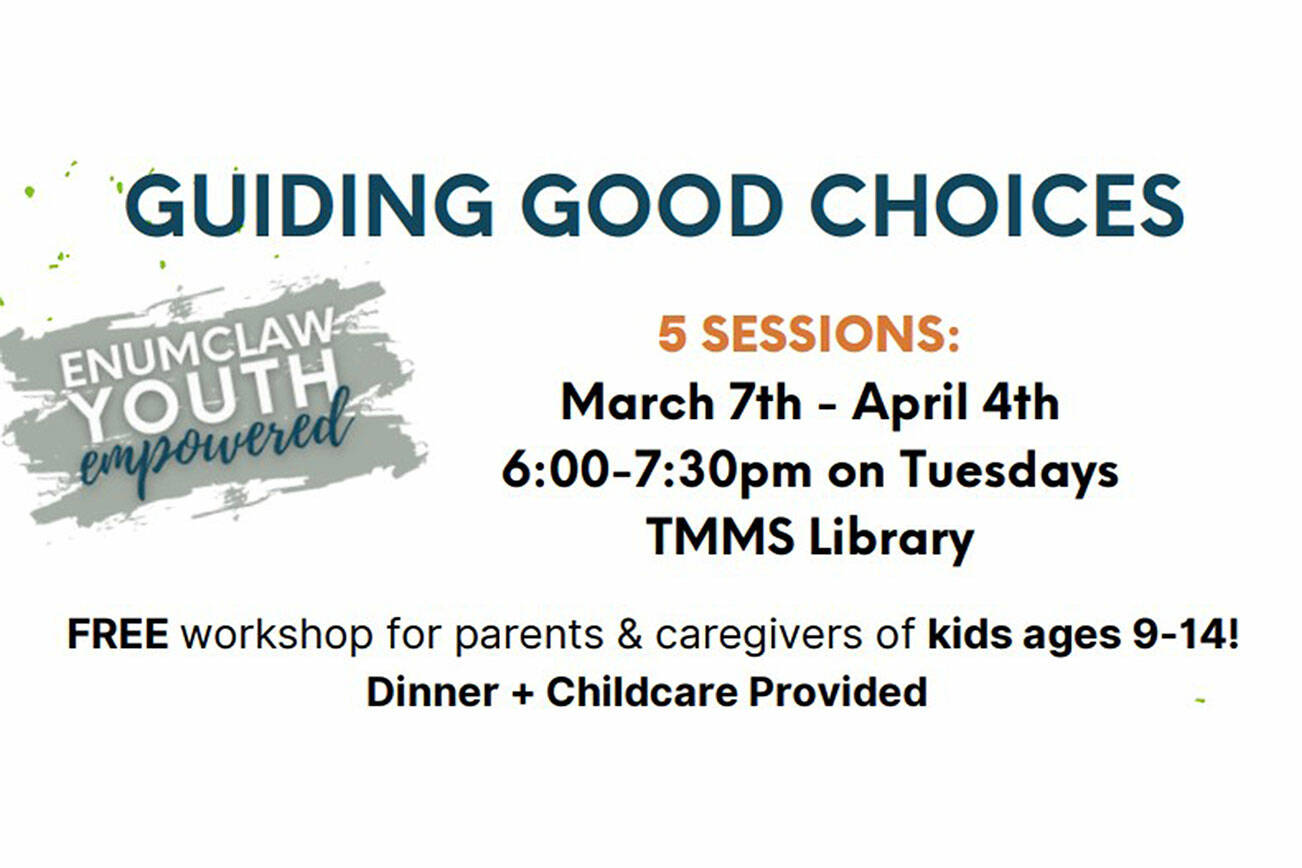There are many stereotypes about teenagers, not least that they just don’t want to talk to their parents about their problems.
So how can parents encourage their kids to open up, especially when it comes to risky behaviors like using substances, becoming sexually active, and being unsafe on social media?
According to locals LouAnn Sawyer and Tabitha Baker, trying to have forced (and likely, very awkward) sit-down conversations about these large topics isn’t the way to go — it’s about starting with the small stuff that comes with everyday life.
But it can be hard to remember that amid the hustle and bustle of the day, which is why Sawyer and Baker, along with Licensed Marriage and Family Therapist Jennifer Auger, are hosting a five Guiding Good Choices seminars every Tuesday from March 7 to April 4, from 6 to 7:30 p.m. at Thunder Mountain Middle School. The program is free.
The Guiding Good Choices program, developed by the University of Washington, is designed for sessions to build off each other, so it’s recommended to RSVP for the first session and attend all five.
To encourage parents to come and attend all the meetings, dinner and childcare will be provided.
“I have a sixth-grader, I have a ninth-grader, and I have… an eleventh-grader. And so, I was thinking to myself, ‘Well, my kids, I’m not too worried about them getting on drugs, but yeah, I should talk to them about these things’,” said Baker, describing her mindset before being trained to facilitate Guiding Good Choices sessions by taking the course herself. “But honestly, the training ended up being so much more about strengthening families… it was so much about the importance and the evidence behind family meetings, and talking to your kids, and controlling your anger and why that’s important.”
She went on to say that’s it can be difficult for parents to remember how crucial it is to parent with patience and think long-term, recounting a time where she recently got angry at one of her kids for leaving the freezer open.
But it’s those moments that count the most, Baker continued: “Your kids won’t come to you with something big if you freak out about small things.”
According to The Center for Communities that Care, the stewards of the Guiding Good Choices program, clinical studies have shown that six years after parents and their 6th graders participated in the program, the children were 28% more likely to remain drug free, 41% less likely to use alcohol and marijuana, and 54% less likely to progress to more serious substance abuse than their peers.
And while the program specifically focuses on drug use, the strategies it teaches parents can be applied to other risky behaviors as well.
Baker said that although the program is designed for parents with kids aged 9 to 14, they recommend it especially for parents whose children are just getting started in middle school.
“This class is so perfect for parents to start… talking to them before they clam up,” she added.
At this time, the program is halfway full, with a maximum of about 20 slots available locals.
In order to RSVP, head to enumclawyouth.org; if the class is full, your name will be placed on a waiting list.
And if the program is popular, Baker and Sawyer hope to hold additional sessions in the future, and might consider streaming the sessions on Zoom (though an important part of the program are the break-out groups where parents can talk about their own experiences and provide each other with solutions to problems they’ve encountered).
For more information about the Guiding Good Choices program, head to communitiesthatcare.net/programs/ggc/.


